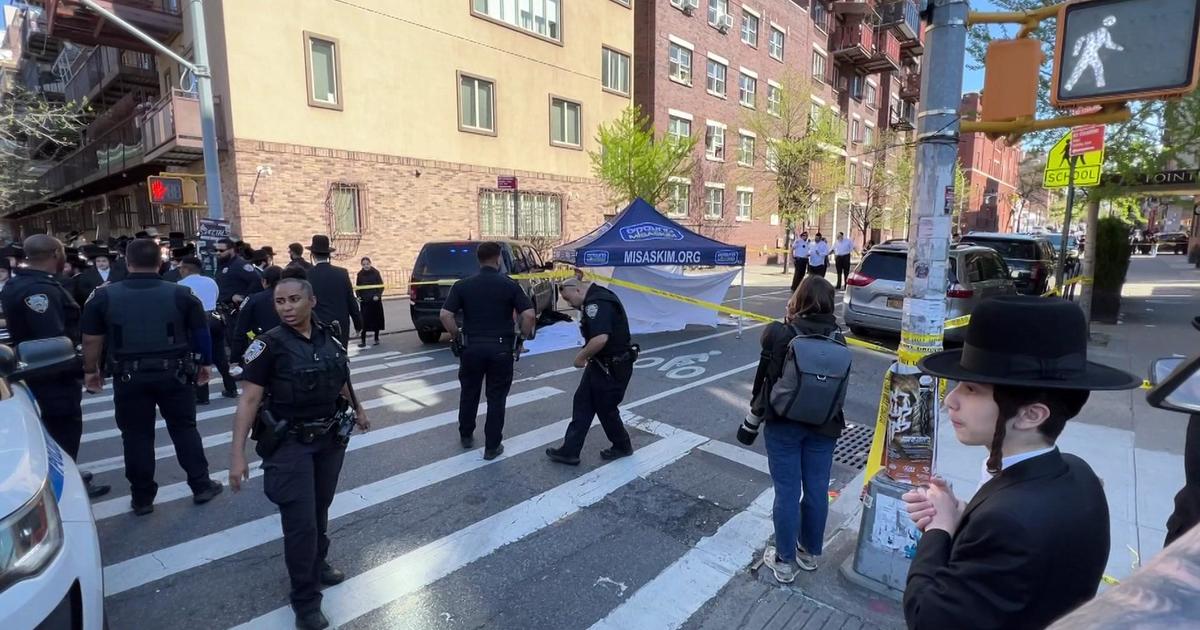Gov. Cuomo Confident Of Teacher Evaluation Deal By Deadline
ALBANY, N.Y. (CBSNewYork/AP) -- After several straight days of closed-door talks, Gov. Andrew Cuomo said Tuesday he's confident a deal will be struck to create tougher teacher evaluations that will be a national model for identifying the best teachers and firing the worst.
But Cuomo also said his Thursday deadline for striking a deal on a statewide "template" for teacher evaluations is still in place. After such a framework is created, school districts will have one year to negotiate local union agreements on specific evaluations for their teachers or Cuomo will cut districts' share of a 4-percent increase in state school aid for 2012-13.
Nearly $1 billion in federal and state aid hinges on whether a landmark teacher evaluation system is created statewide.
Major sticking points remain after two years of the statewide talks between the New York State United Teachers union and the state Education Department, including how much weight the evaluations will give to student progress, measured in standardized tests.
"I'm optimistic they are going to get it done," Cuomo told reporters.
Cuomo said he would help Mayor Michael Bloomberg in stalled negotiations with the United Federation of Teachers on a local evaluation system, but the governor won't impose a local plan. Cuomo said if New York City can't reach an agreement, its schools could miss out on $300 million in added state school aid.
The New York State United Teachers union leadership has agreed student performance has a role in teacher evaluations, but notes the tests aren't designed to rate teachers' success or failure.
Scores on standardized tests in English and math in fourth and eighth grades will be used, but other tests, including high school Regents exams, could be added. At least 20 percent of a teacher's evaluation would depend on the test scores, although it could be as high as 40 percent, depending on local agreements negotiated between school districts and their unions.
The union has said forces beyond a teacher's control, such as when a student's parents lose their jobs or get divorced or a student deals with depression, can hurt a classroom's overall performance enough to effect a teacher's evaluation, which could lead to dismissal.
Neither side would comment on the sticking points being negotiated in these last tense days.
Some teacher advocates fear that with the pressure to achieve a broad political compromise, provisions will be lost that are needed to protect special education teachers. Other special circumstances affect immigrant children who leave schools for lengthy holidays to visit family overseas, which has become a concern in some New York City schools.
The independent Advocates for Children of New York are trying to insert provisions that recognize the particular challenges of special education teachers, who must help students with emotional and physical disabilities, and others who are teaching immigrant students to learn English along with their lessons.
In a letter earlier this year to the state Board of Regents, eight recent teachers of the year recounted examples of special situations they fear aren't part of the closed-door negotiations. They include a student with learning disabilities who benefits from a challenging science course even though he can't pass the final test, another student diagnosed with depression, another that missed several days of school for school sports competitions, and another who lost a week to go out of state on a family of vacation. Another instance was a teacher who sought the challenge of dealing with at-risk students whose success won't be demonstrated by test scores. Just a few of those situations could diminish classroom performance reflected in test scores.
"A teacher working with a student with disabilities has to contend with overall classroom goals, but also with the individualized goal of students," said Kim Sweet, executive director of Advocates for Children, which is funded by independent foundations and isn't connected to teacher unions. "In addition to content and curriculum, students may be working with social and emotional issues, many may have physical issues and are working at a different level, although the same content, as other classes. A teacher has to differentiate instruction to a whole different level."
The unintended consequence of a general evaluation system that doesn't make allowances for these instances risks the firing of hard-to-keep teachers in special education, more disabled students turned to less rigorous alternative assessments, and a shortage of teachers entering the difficult field, said Gisela Alvarez, senior project manager at the organization that serves low-income students, mostly in New York City.
"These are all locally bargained plans and the school districts' point is you need that level of customization school district by school district," Cuomo said.
(TM and Copyright 2012 CBS Radio Inc. and its relevant subsidiaries. CBS RADIO and EYE Logo TM and Copyright 2012 CBS Broadcasting Inc. Used under license. All Rights Reserved. This material may not be published, broadcast, rewritten, or redistributed. The Associated Press contributed to this report.)



